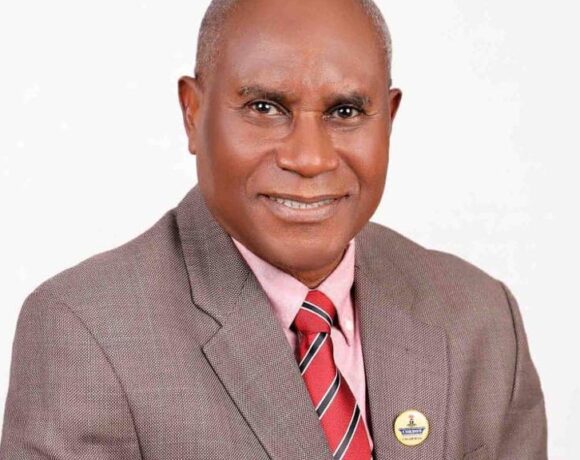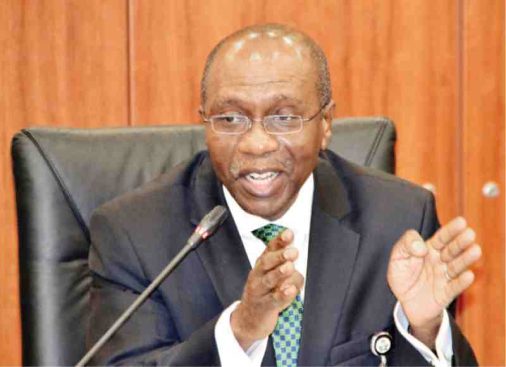Governors snub Routine Immunization and endanger children – Report
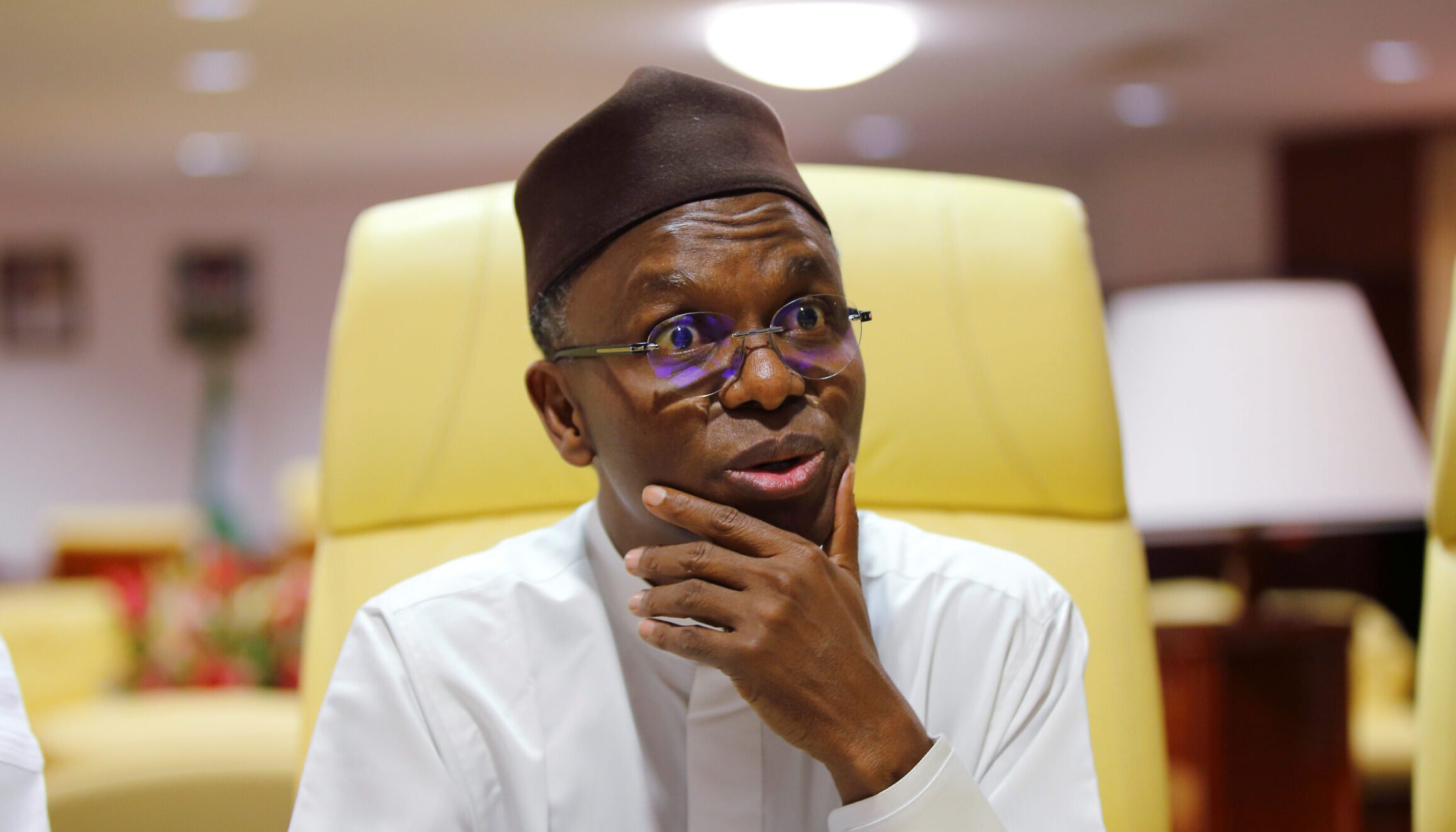
The World Immunization Week 2021, meant to emphasize the value of vaccines in preventing diseases that were previously life-threatening, was commemorated last week. However, a report by the Partnership for Advocacy in Child & Family Health at Scale (PACFaH@Scale) shows that state governments are not committed to Routine Immunization, as seen in sloppy budgetary allocation to and dismal releases for its implementation.
PACFaH@Scale’s report shows how child mortality (under-five mortality rate), in Nigeria, remains high. It says “Nigeria ranks the highest in the number of under-five deaths as a direct result of vaccine-preventable diseases (VPDs).” It quoted UNICEF’s figure which says in 2019, 858,000 under-five deaths occurred in Nigeria. The report also quoted the 2018 Nigeria Demographic Health Survey (NDHS), which estimated that the “under-five mortality rate in Nigeria is 132 per 1,000 live births; meaning about one in eight Nigerian children” die before the age of five.
To mitigate the ugly situation, UNICEF, European Union, Bill & Melinda Gates Foundation, Global Alliance for Vaccine Immunization (GAVI) and the Federal Government have made financial contributions in diverse ways to facilitate Routine Immunization.
The state relies almost entirely on funding from donor agencies for RI
However, several state governments are either not transparent nor forthcoming in their financial commitments to this all-important health issue. The states in PACFaH@Scale’s report include Kaduna, Kano, Niger, and Lagos.
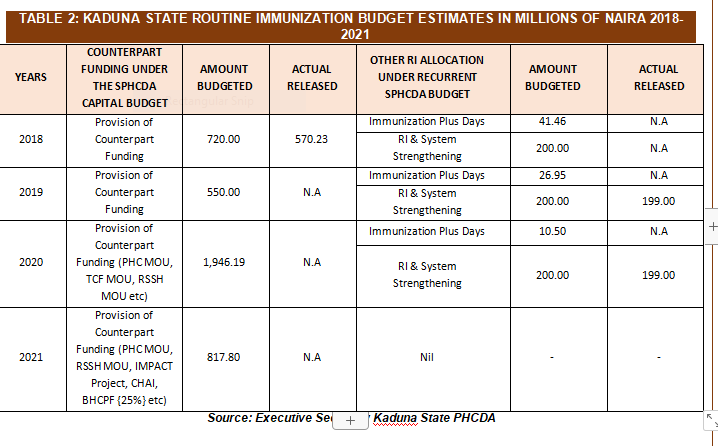
On the situation in Kaduna, the CSO said, “The Kaduna state government entered into an MoU in 2018 where it committed the sum of N199.812 million to routine immunization and system strengthening as counterpart funding between 2019 and 2021, and the sum of N285 million between 2022 and 2023.”
However, the state governed by Nasir El-Rufai did not clearly keep to these obligations. According to PACFaH@Scale’s report, “Lack of clarity has created some confusion in making sense of the state government’s commitment to RI funding. For instance, having removed all dedicated RI budget under the recurrent expenditure in the approved 2021 budget, the counterpart funding for the RI commitment by the state government under the 2018 MoU would be funded under the N817 million for the Provision of Counterpart Funding… This scenario indicates an end to the Kaduna state government routine immunization funding through recurrent expenditure.”
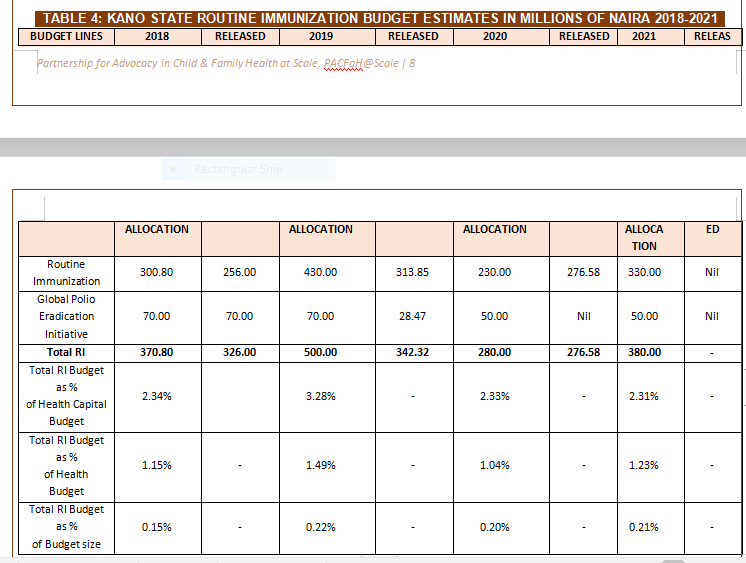
The report said Kano has consistently made budgetary allocations to routine immunization, but it failed to release the total sums budgeted for it. “The state government released the sum of N304 million in 2018, N664 million in 2019, and N180 million in 2020 for the various programmes and activities under the Save One Million Lives (SOML) programme.”
Inadequate and untimely releases of funding to immunization-related activities could lead to non or under-vaccination of the Uner-5 children in the 2021 fiscal year
In Niger State, there is no dedicated budget line for routine immunization, the report says, explaining that “In 2019 and 2020, the state allocated the sum of N200 million and N100 million respectively, in lump sums for nutrition, safe motherhood, family planning, adolescent health, women in health, immunization, MNCH Week, DRF, Environmental Health, IMCI and health promotion.” The state’s budget, however, specifies how donors’ funded programmes/activities immunization would be spent. It means, therefore, that the state relies almost entirely on funding from donor agencies for RI.

On its part, according to the report, Lagos State made allocations for Routine Immunization but failed to release the total amount in the budget. PACFaH@Scale says “The state allocated the sum of N100 million and N234 million for RI in the year 2019 and 2020 respectively. Out of this N38 million and N126 million were released. For other immunization-related activities, Lagos would rely largely on counterpart funding, according to the report.
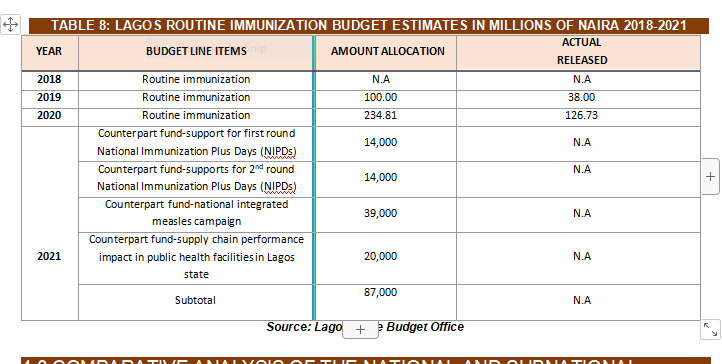
Overall, the report says, state governments depend on donor funding, which does not portray the country in good light. It says, “Inadequate and untimely releases of funding to immunization-related activities could lead to non or under-vaccination of the Uner-5 children in the 2021 fiscal year. This could in turn create a potential risk for the outbreak of some other preventable diseases in the state. With no dedicated budget lines for RI in 2021, especially in Niger State approved budget, whatever the intention of the state government, this will not only send a wrong signal to the donor or other potential parties interested in supporting the government on the issue of child health, but it could lead to underfunding of the RI activities…”
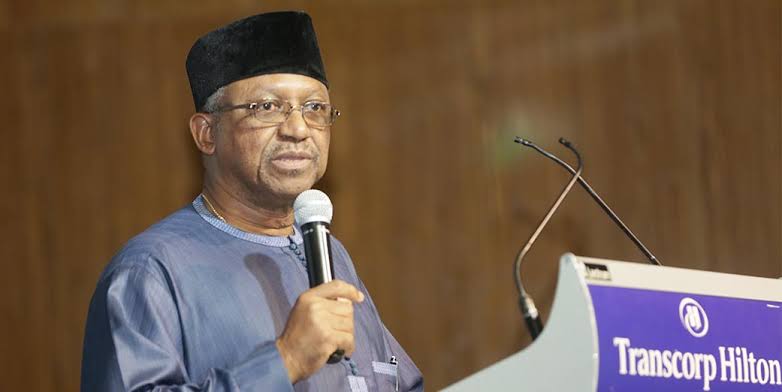
Minister of Health, Dr. Osagie Ehanire
The report added that donor funding has a lifespan everywhere in the world. “When they end, the beneficiary government is expected to take ownership with adequate funding commitment and releases. It, therefore, called on “the national and sub-national level government [to] understand that this is not the time to take its foot off the accelerator; rather it is a period to give routine immunization a vital boost through dedicated budget lines and adequate funding.”
The Insight Report
Nigeria Coverage

